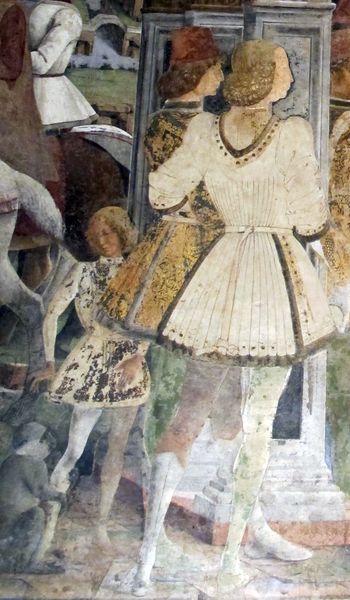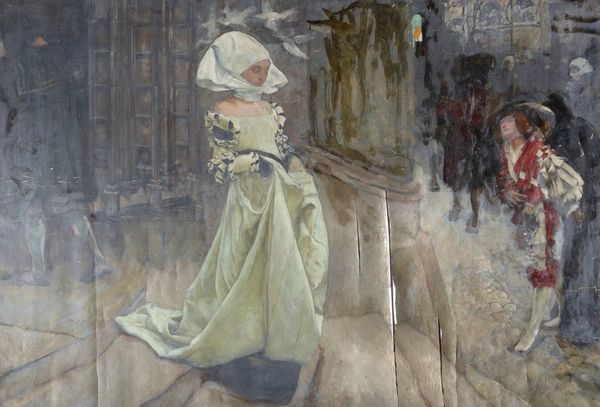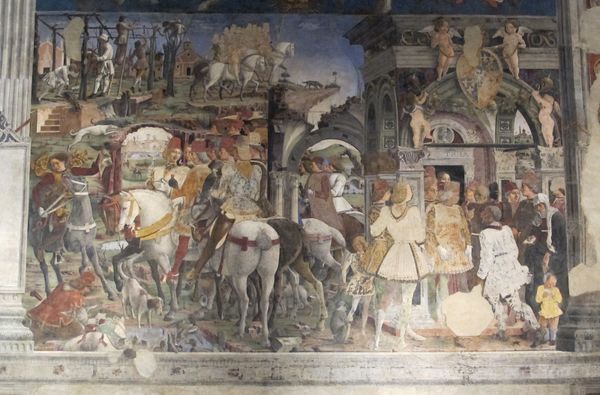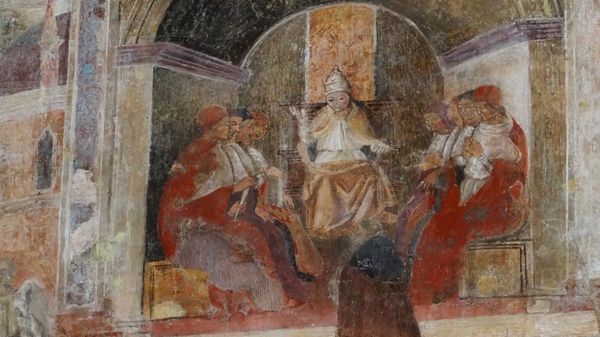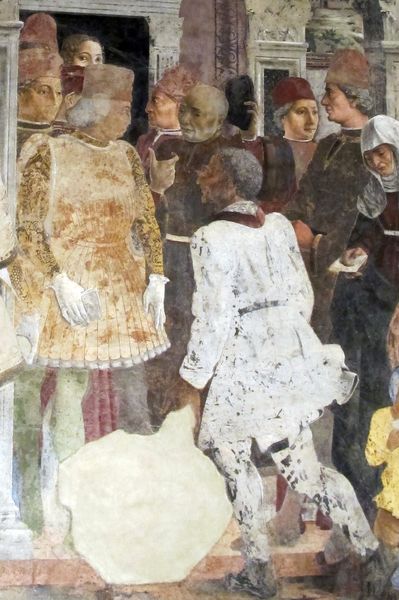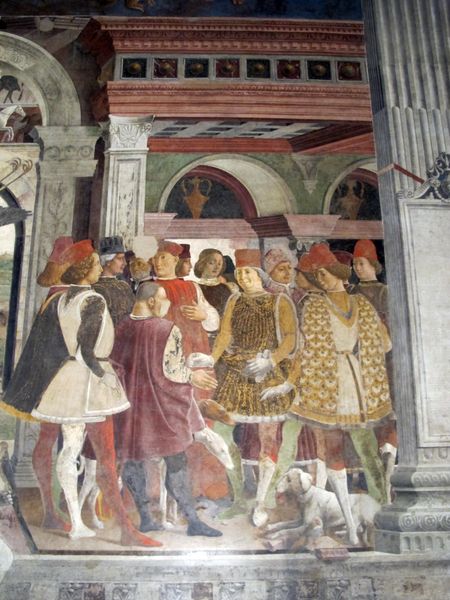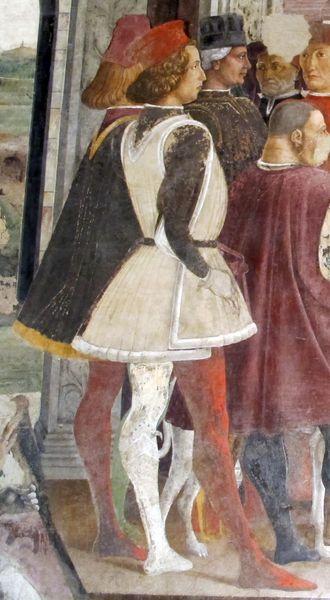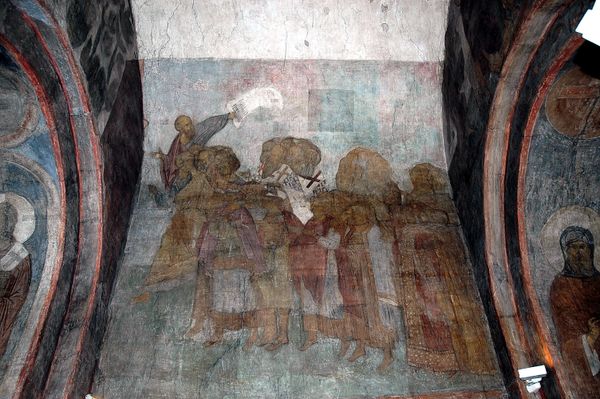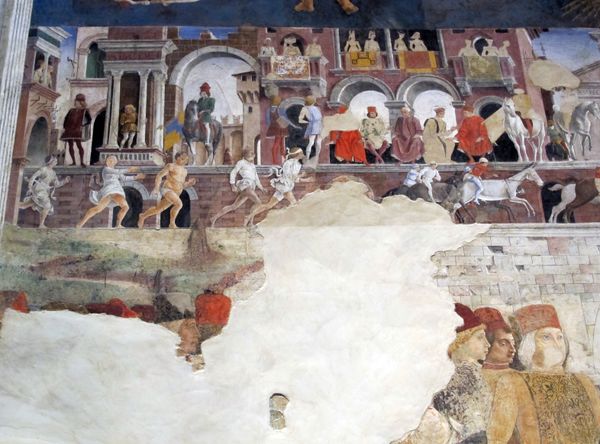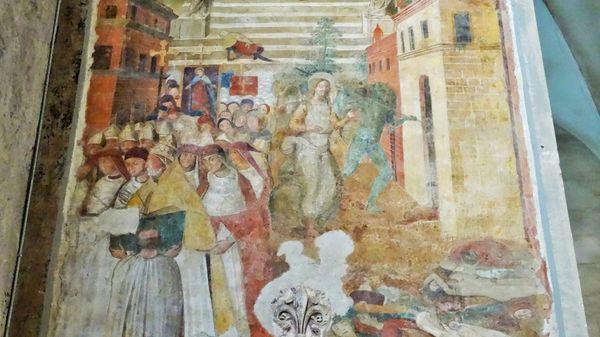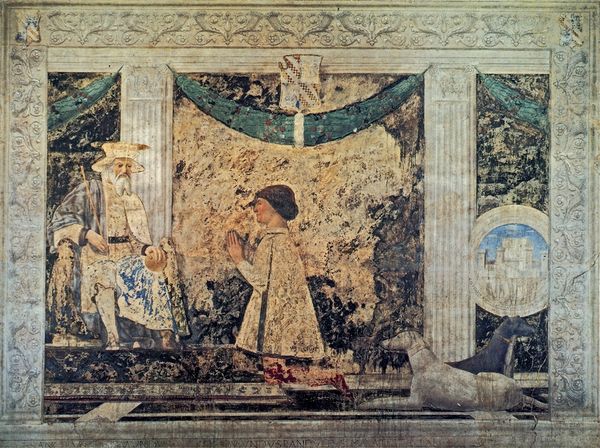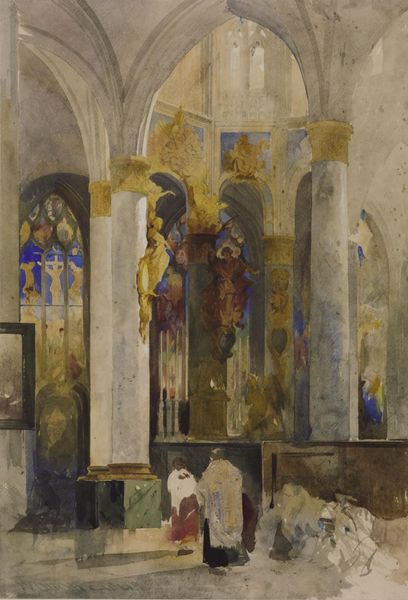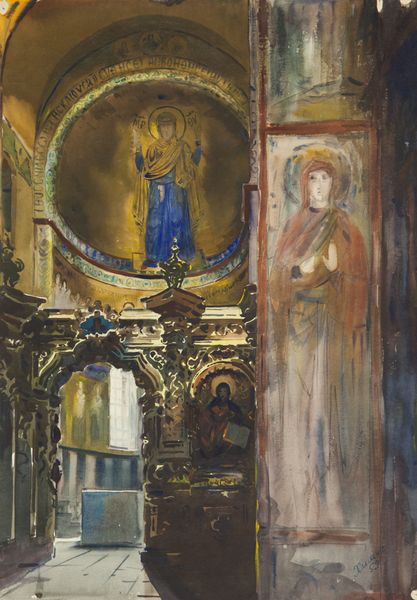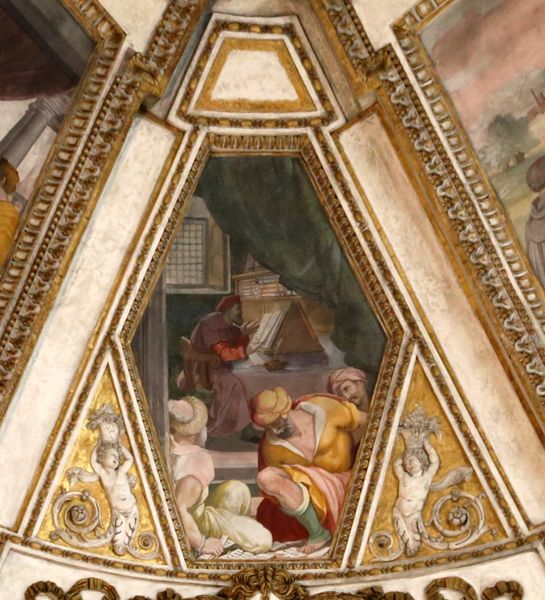
Allegory of March – Triumph of Minerva and Sign of Aries. Frescos in Palazzo Schifanoia (detail) 1470
0:00
0:00
painting, fresco
#
allegory
#
painting
#
painted
#
fresco
#
oil painting
#
genre-painting
#
history-painting
#
italian-renaissance
#
mixed media
Copyright: Public domain
Editor: This is a detail from Francesco del Cossa's fresco, "Allegory of March – Triumph of Minerva and Sign of Aries" from around 1470, found in the Palazzo Schifanoia. I find its aged state strangely captivating; even in fragments, figures emerge, full of narrative possibility. What stands out to you in terms of the image's meaning and its symbolism? Curator: What catches my eye is how this fresco, even in its fragmented condition, acts as a memory palace, filled with archetypes and symbols. It seems Cossa is presenting not just a literal scene, but also an interwoven story of cultural memory. Consider Minerva, the goddess of wisdom and strategic warfare, whose triumph is visually highlighted, what connotations might this figure evoke to a Renaissance audience? Editor: Power, knowledge, perhaps even a subtle critique of brute force? I'm curious about the astrological references too, Aries...how does that sign fit into this narrative tapestry? Curator: Precisely. Aries, the ram, is a sign of new beginnings and initiative. Its inclusion suggests a temporal marker, yes, but beyond this temporality, could it be connected to personal drives? Think about the interplay of divine wisdom and human impulse embodied in the figures around it. Editor: It's amazing how a fresco, intended to adorn a palace wall, functions like a coded message to us, bridging centuries. Curator: Exactly. Through these visual symbols, Cossa isn’t just decorating a wall; he's inviting us into a world of layered meaning. This becomes an act of preserving not just art but collective human understanding, accessible across eras. Editor: I now view the fresco less as decoration and more as a dialogue across time! Thank you.
Comments
No comments
Be the first to comment and join the conversation on the ultimate creative platform.
